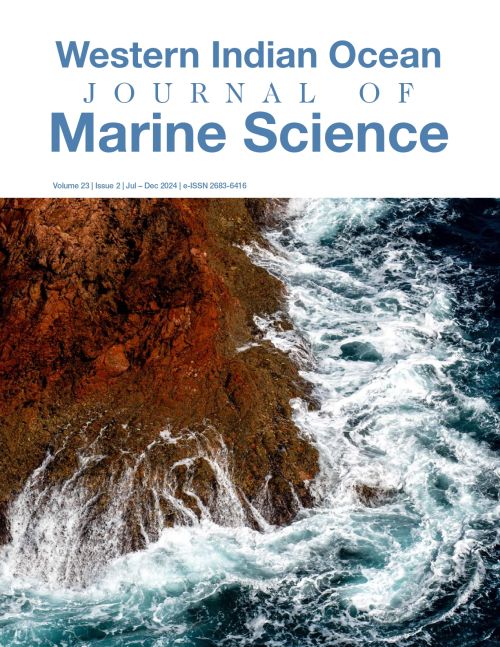Main Article Content
Influence of Covid-19 restrictions on the status of mangrove vegetation in coastal Kenya
Abstract
Mangrove forest ecosystems provide essential services to tropical coastal communities, includ- ing as a source of food, fuel and building materials. During the Covid-19 pandemic human movements were restricted at all levels, including locally in coastal communities. The impact of these measures on marine ecosystems such as mangroves were not well understood. A household survey was conducted in a mangrove-dependent community at Mtwapa Creek to evaluate their perceptions on the rate of mangrove degradation, factors contributing to man- grove degradation, and species that were most exploited during the pandemic period. Multiple Correspondence Analysis (MCA) was used to determine the association of Covid-19 with eco- nomic activities. Due to the restrictions on human interactions and travel during the pandemic, some natural ecosystems thrived, but in contrast accelerated destruction of mangrove forests occurred along Mtwapa Creek. The MCA indicated significant association between mangrove degradation rate and unemployment, charcoal burning, and reduced farming activities. A Chi- square test confirmed significant degradation of mangrove forests. Loss of income sources dur- ing the pandemic led to an increase in exploitation of Rhizophora mucronata, Ceriops tagal and Avicennia marina. These species were mainly harvested for construction and charcoal burning. Mangrove management measures could not be effectively enforced during the pandemic.







